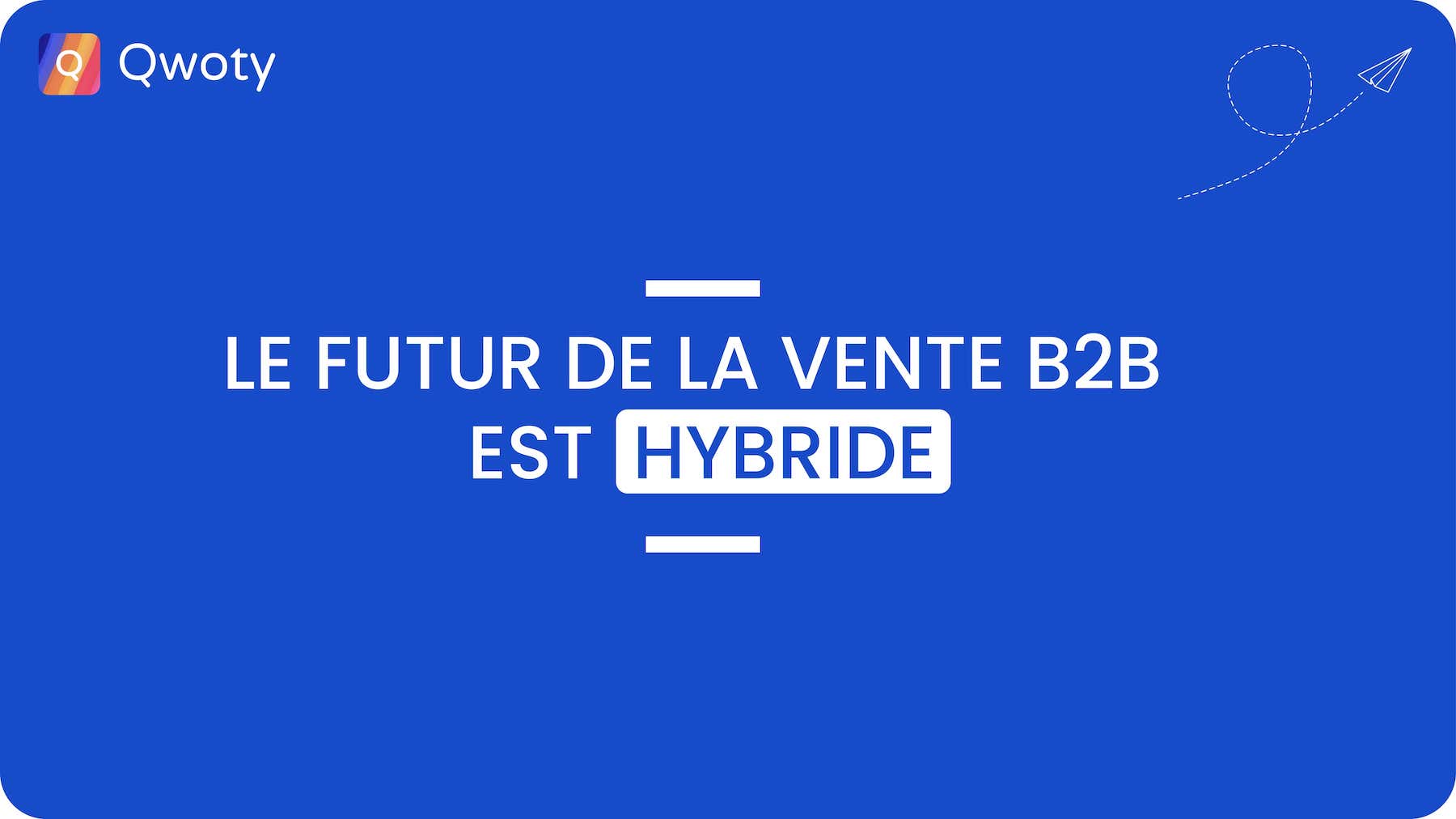The future of B2B sales is hybrid
Published November 28, 2022

As B2B buyers use more channels, B2B sellers need to do the same.
🎯 Key points to remember
- Hybrid selling is set to be the most dominant sales strategy by 2024, driven by changing customer preferences and remote engagement.
- Hybrid sales generate up to 50% more revenue through more personalized customer engagement
- The most successful B2B companies are moving towards a more hybrid sales force by implementing four actions that promote success.
What is hybrid sales?
Hybrid retailing is the proposal of a customer journey offering several purchasing experiences, from 100% physical to digital self-service and remote interactions.
There are three main reasons for this move towards a hybrid sales system: firstly, there has been an explosion in the sales and marketing technologies available. Secondly, purchasing behavior and customer expectations are changing in the B2B world. Thirdly, suppliers have the opportunity to reduce costs by optimizing their sales force. The consumerization of B2B is underway, and B2B customers are adopting B2C buying habits, increasingly appreciating personalization and hybrid experiences.
As a result, the role of sales teams is changing - and this change will not be without difficulty - but it is an essential step in the path of their digital transformation.
According to a McKinsey survey, 70-80% of B2B decision-makers now prefer remote human interaction or digital self-service to face-to-face interaction, citing ease of scheduling, travel cost savings and security as their top three reasons.
While the move towards a more hybrid and digital sales model was already on the rise before the pandemic, the latest Mckinsey survey shows that hybrid is set to be the most dominant sales strategy by 2024.
Four ways to optimize hybrid sales
The most successful teams invest in systemic changes to improve their sales force and better perceive customer needs, focusing on agility, customer knowledge, technology and training.
1. Agility: Give priority to distance selling when possible and when customers prefer it, but don't abandon face-to-face sales altogether.
The most successful hybrid sales teams operate in an agile organization where the majority of sales are carried out virtually. This remote or digital self-service selling mainly concerns standard offers, whose price construction is not customized. In-person sales do not disappear altogether, but are reserved for specific accounts, such as very large customers with complex needs, or for large opportunities where buyers have indicated a preference for face-to-face engagement.
2. Knowledge: Leverage end-to-end customer and vendor information.
The need for sales people to record accurate, detailed information in customer relationship management (CRM) systems is essential in a hybrid environment. When qualitative data is combined with data from digital customer interactions, the result is a richer set of actionable insights.
3. Technology: Optimize technology for a remote environment
The pandemic has given rise to a growing number of technological tools that sales teams can use to their advantage. Digital tools enable B2B salespeople to improve their performance by better targeting prospects, better converting sales opportunities and optimizing the value they can derive from them.
The most successful sales organizations apply a number of strategies to encourage thoughtful adoption of new technologies.
4. Talent: Cultivate next-generation sales capabilities and attract more diverse talent by becoming a learning organization.
Training sales teams and recruiting new talent are essential to support the evolution of B2B sales. The specialization and ability of sales people to use digital tools have a major impact on a company's sales performance. Sales teams and digitalization should not be seen as incompatible and opposed, but rather as powerful allies.
Source:
Mercuri, Research Report 2021 the future of sales
Mckinsey (2022). The future of B2B sales is hybrid
LinkedIn : Report: Trends in B2B Sales 2022 Edition

